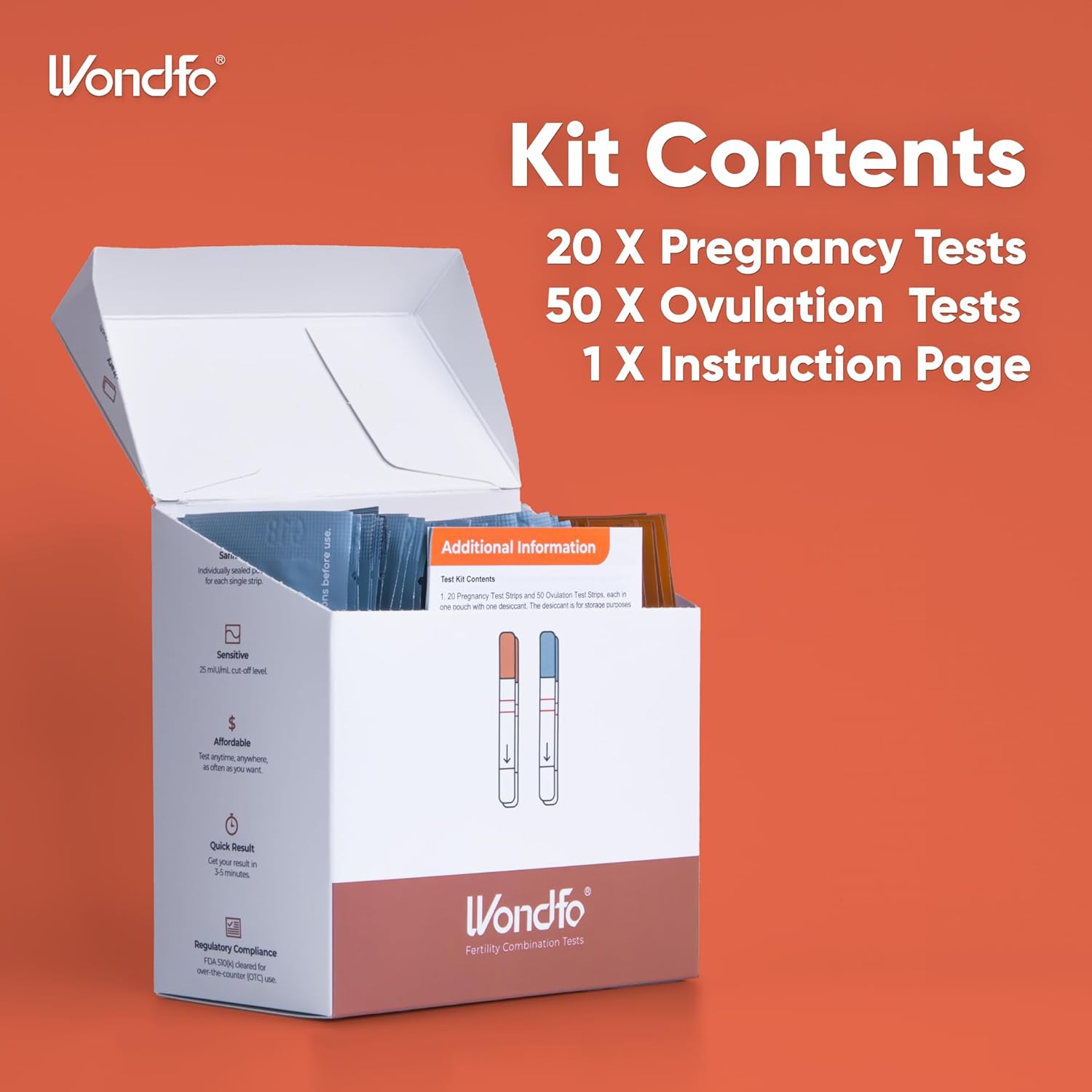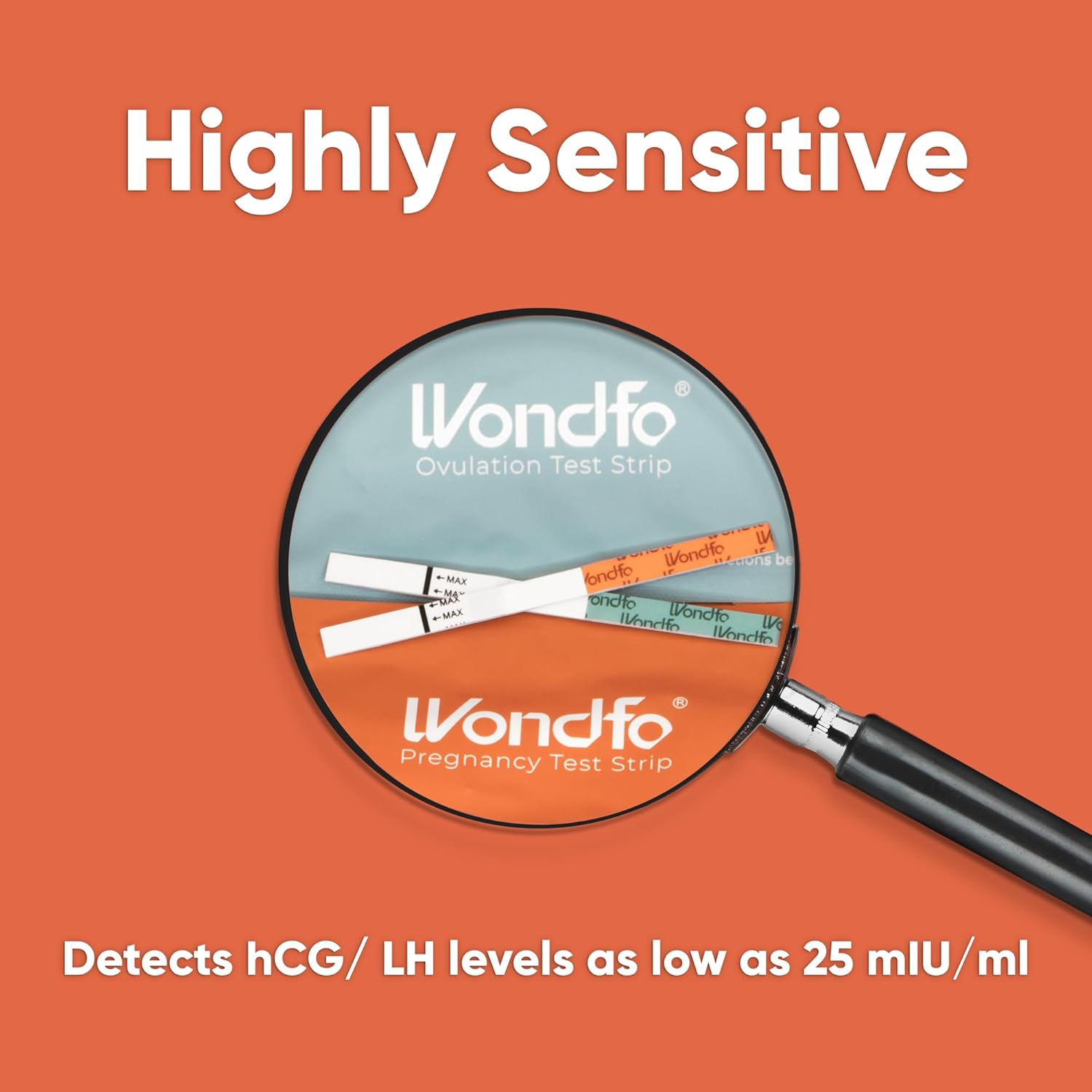








Price: $19.99 - $17.09
(as of Apr 10, 2025 17:12:11 UTC - Details)
What is the Best Time to Test for Pregnancy? A Comprehensive Guide
Introduction
When it comes to pregnancy testing, timing is everything. Understanding what is the best time to test for pregnancy can make a significant difference in the accuracy of your results. Whether you’re trying to conceive or just curious, knowing the optimal time to take a pregnancy test will save you time, money, and emotional stress. In this article, we will explore the key factors that determine the best time to take a pregnancy test, along with practical tips and insights to help you navigate this important moment in your life.
Understanding Your Menstrual Cycle
The Role of Ovulation
To determine the best time to test for pregnancy, it's crucial to understand your menstrual cycle. Ovulation typically occurs about 14 days before your next period is due. If you have a regular cycle, this is a good starting point. Testing too early may lead to inaccurate results, as the pregnancy hormone hCG (human chorionic gonadotropin) needs time to build up in your system.
Tracking Your Cycle
Keeping track of your menstrual cycle can help you pinpoint ovulation and your expected period. Use a calendar or a period-tracking app to note when your cycle starts and ends. This will give you a clearer picture of when to expect a missed period, which is generally the best time to test for pregnancy.
Timing Your Pregnancy Test
Testing After a Missed Period
The best time to test for pregnancy is usually one week after your missed period. At this point, there should be enough hCG in your urine for a home pregnancy test to detect it. Testing too early—just a few days before your expected period—can lead to a false negative result, which can be frustrating.
Morning Testing for Best Results
For even more accurate results, consider testing in the morning. Your urine is more concentrated at this time, increasing the likelihood of detecting hCG. This is especially important if you are testing early, as lower levels of hCG can be missed if you test later in the day.
Types of Pregnancy Tests
Home Pregnancy Tests
Home pregnancy tests (HPTs) are convenient and easy to use. Most tests claim to be able to detect pregnancy a few days before your expected period, but for best results, follow the timing recommendations. Read the instructions carefully for the most accurate outcomes.
Blood Tests
If you want an even more reliable result, consider getting a blood test from your healthcare provider. Blood tests can detect pregnancy earlier than home tests and can provide precise hCG levels. They’re ideal for those who are anxious about the accuracy of home tests.
Factors That Can Affect Test Results
Ectopic Pregnancy
If you suspect you might be pregnant but are experiencing unusual symptoms, it’s essential to consult with a healthcare provider. An ectopic pregnancy, which occurs when the fertilized egg implants outside the uterus, can lead to misleading test results and serious health risks.
Medications and Conditions
Some medications, particularly those containing hCG for fertility treatments, can affect test results. If you’re on medication or have health conditions that could interfere with a pregnancy test, discuss this with your doctor.
Emotional Readiness for Testing
Preparing for the Test
Before taking a pregnancy test, it’s essential to prepare emotionally. Understand that the results may not be what you hope for, and it’s okay to feel a range of emotions. Have a support system in place, whether it's a friend or family member, to discuss your feelings afterward.
Coping with Uncertainty
Waiting for results can be nerve-wracking. Consider ways to cope with the uncertainty. Engage in activities you enjoy, or practice relaxation techniques to ease anxiety while waiting to test.
Conclusion
In summary, knowing what is the best time to test for pregnancy is crucial for getting accurate results. The optimal time to take a test is typically one week after your missed period, and testing first thing in the morning can enhance accuracy. Understanding your menstrual cycle, the types of tests available, and the emotional aspects of testing can help you navigate this significant moment with confidence. Remember, whether the result is positive or negative, you’re not alone in this journey. Take care of yourself, and don’t hesitate to seek support if you need it.
Highly Sensitive - Levels of hCG as low as 25 mIU/ml can be detected within 3 to 5 minutes.
User-Friendly Design - Each test is sealed in individual pouch. It can be carried anywhere with privacy protection.
Quick and Reliable Result - Dip the test in urine for 5 seconds and read the result in 3-5 minutes (Double lines for pregnant and single line for not pregnant).
Extra Assurance with Time-Series Tracking - Don't wait for a missed period! Our cutting-edge pregnancy tests are engineered to detect pregnancy at an early stage (1 day before missed period).Applied to all cycle lengths, our ovulation test strips help customers keep tracking on their ovulation and minimize the probability of missing the LH surge.
Customer Satisfaction Guaranteed - All tests have CE/FSC approved. We are dedicated to be the best home tests provider. Refund or return for defective products are acceptable.
No More Pregnancy Frustrations - Our ovulation prediction helps identify your fertile window and plan accordingly with a few months of consistent usage.
